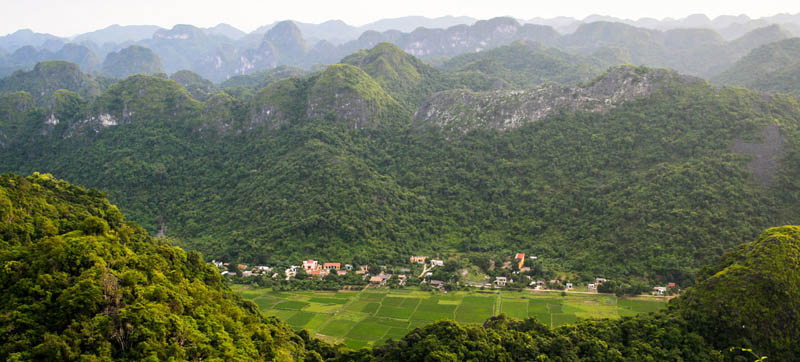 Biodiversity
Biodiversity
Restoration call for area ‘the size of China’ to protect falling biodiversity and food insecurity
New York: An area of land roughly the size of China needs restoring if the planet’s biodiversity and the communities who rely on it are to be protected, UN agencies said on Thursday.
The Food and Agriculture Organization (FAO) and UN Environment Programme’s (UNEP) call to reinstate at least one billion degraded hectares of land by 2030 must also be matched by a similar commitment to the oceans, or else risk a growing threat to global food security, they added.
In a new report marking the start of a Decade of Ecosystem Restoration, the agencies warned that humans are already using 1.6 times the resources that nature can provide sustainably.
Forest loss
Some 420 million hectares of forest have been lost since the 1990s, the UN report noted, and Member States are “not on course” to meet pledges to increase the overall amount of woodland by three per cent by 2030, said Mette Wilkie, Director of FAO’s Forestry Division.
“Conservation efforts alone will be insufficient to prevent large-scale ecosystem collapse and biodiversity loss”, FAO and UNEP maintained, before underscoring the need for countries to “reprogramme” their post-COVID-19 recovery and move away from massive subsidies to carbon-heavy sectors such as fossil fuels.
Paris challenge
“It is no longer enough just to protect what we have, we have to go beyond that and restore, not only to halt the loss of biodiversity, but also to meet the Paris Agreement’s climate targets”, said Tim Christophersen, head of UNEP’s Nature for Climate Branch, Ecosystems Division, in reference to the 2015 summit, where countries committed to limit global average temperature rise to well below two degrees Celsius compared to the pre-industrial level, and preferably 1.5C.
“If we do this at the necessary scale it will have benefits far beyond climate change and biodiversity…for food security, for health, for clean water, for jobs. Restoration can benefit all these Sustainable Development Goals”, he explained.
Natural protection
Ecosystems - from forests and farmland to rivers, oceans and coastal areas – offer natural protection from the triple threat of climate change, loss of nature and pollution, but “poor stewardship of the planet" threatens the well-being of future generations, the agencies warned.
Those places in most urgent need of attention include farmland and forest, grasslands and savannahs, mountains, peatlands, urban areas, freshwaters, and oceans, FAO and UNEP insisted, adding that communities living in almost two billion degraded hectares of land include some of the world's poorest and marginalized.
Launching the joint UN report, UNEP Executive Director Inger Andersen and FAO Director-General, Qu Dongyu, urged all countries to commit to a “global restoration effort” to protect and promote natural spaces, as this will bring cleaner air and water, mitigate against extreme weather shocks, promote human health and biodiversity, whose benefits include improved plant pollination.
"Degradation is already affecting the well-being of an estimated 3.2 billion people - that is 40 per cent of the world's population”, said Ms. Andersen and Mr. Dongyu. “Every single year, we lose ecosystem services worth more than 10 per cent of our global economic output,” but "massive gains” are possible if these trends can be reversed, they added.
$200 billion a year needed
To achieve land restoration targets by 2030, UNEP and FAO estimate that investment of at least $200 billion per year by 2030 will be needed. Amid concerns about where this funding might come from, the UN report noted that every $1 invested in restoration is expected to create up to 30 times that amount in economic benefits.
While the need for land restoration is urgent – as recognised by a UN General Assembly-sponsored UN Decade on Ecosystem Restoration 2021–2030, coastal and marine protection is even more important for everyone’s wellbeing, the UN agencies insisted.
“We speak of two thirds of ocean ecosystems being damaged, degraded and modified, and if you consider that the planet is 70 per cent ocean, that is an enormous amount, including plastic pollution which is so ubiquitous that it is very hard to avoid plastic - even in fish that we catch and eat,” said UNEP’s Mr. Christophersen.
Support Our Journalism
We cannot do without you.. your contribution supports unbiased journalism
IBNS is not driven by any ism- not wokeism, not racism, not skewed secularism, not hyper right-wing or left liberal ideals, nor by any hardline religious beliefs or hyper nationalism. We want to serve you good old objective news, as they are. We do not judge or preach. We let people decide for themselves. We only try to present factual and well-sourced news.







